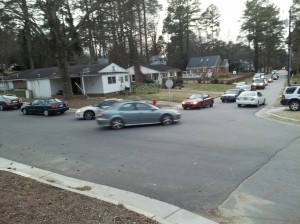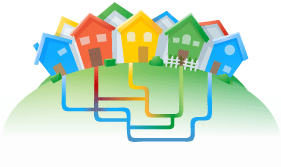Since I’ve been having so much fun with Amazon Web Services, I thought I would check out Google’s offering, called Google Cloud. I’ve only had a trial running with it for about 24 hours but so far it seems solid. The server I am using is fast and has good connectivity to Google’s servers, which is a good thing.
What is a bad thing, however, is that my hosted server has very poor connectivity to me. The round-trip ping time is about 55ms, whereas AWS with it’s Ashburn, VA datacenter gets me 25ms. Huge difference! Also, my AWS instance has 14 routers to navigate before it gets to me but my Google Cloud instance travels through a whopping 24 routers. Those packets bounce around like ping pong balls! I was hoping that with Google’s company-owned fiber network and datacenters located here in North Carolina I would get faster response times. No such luck … yet.
Why “yet?” Well, Google Fiber is coming to the Triangle, in case you’ve been under a rock. I’m hopeful once I’m on the Google Fiber network, my latency to Google Cloud will drop considerably, perhaps <1ms. This invites all sorts of innovations. Give clever developers fat resources located close (on the network, anyway) to their audience and some interesting things start to happen.
Google Fiber could be the fire that lights off Google Cloud. I figure it’s worth checking out the new landscape now so that I can get in on the game.

